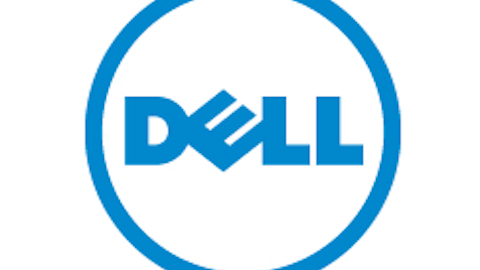Intuit Inc. (NASDAQ:INTU) is a software maker with some of the most recognizable products around, such as QuickBooks, TurboTax, and Quicken. Intuit has done very well over the past decade or so, with steadily increasing revenues every year. Also, Intuit does a good job of creating value for its shareholders, with an excellent buyback program and a recently implemented dividend. With the increasing trend of doing bookkeeping and taxes electronically (and through tax professionals), I believe there is still growth to be had here.

Profile and Future Growth
Intuit makes products in four main categories: Small Business, Tax, Financial Services, and Other Businesses. The Small Business and Tax segments combine for 85% of the company’s revenues. Intuit’s tax software has been the market leader for years, and continues to grow in popularity as less people file paper tax returns over time.
According to the U.S. Treasury, over 90% of 2011 tax returns were filed electronically, leaving some, but little room to grow. Where the company sees growth coming is producing software for professionals such as accountants who service customers. While Intuit already makes software aimed at professionals and small businesses, this is an area where there is more growth opportunities.
Analysts see Intuit’s revenues growing 9% in 2013 and 10% in 2014, which is consistent with the revenue chart above, so no slowdown in the company’s revenue growth is expected.
Valuation and Competition
Intuit is fairly valued right now, considering both its growth and leading market share. The stock currently trades for 21.2 times 2012’s earnings, which the consensus expects to rise to $3.36, $3.73, and $4.20 over the next three years, or a 12.2% average annual earnings growth rate.
As a general rule, as long as a company does not have excessive debt, or a lot of cash on the balance sheet, I look for companies that trade for a multiple that is less than twice the projected earnings growth rate. So, Intuit meets my qualifications since twice its growth rate is 24.4, and the P/E multiple is significantly less.
Although there are few companies that I would call direct competitors to Intuit, for comparison’s sake, I would like to briefly look at two companies that are similar to Intuit, but in different ways. Microsoft Corporation (NASDAQ:MSFT), the biggest software producer in the world, and H&R Block, Inc. (NYSE:HRB) a leading tax preparer.
Microsoft is usually a good indicator of the state of the software industry. Although it is an extremely large company by comparison, there are many aspects of Microsoft’s business model that are similar to Intuit. The companies have similar growth patterns, as evidenced by comparing the revenue charts of both companies. Surprisingly, Intuit’s revenue growth has been even more consistent than “rock-solid” Microsoft!
Microsoft trades at a lower multiple of 15 times earnings, due mostly to weakness in their Windows 8 release and the lower projected growth. When a company gets so large, a growth rate in the double digits is difficult to maintain. However, as I said, since it is more covered in the press, Microsoft can be a great way to gauge trends in the industry.






